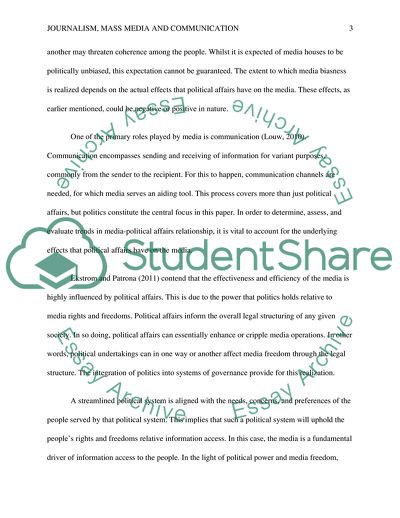Cite this document
(Media and Political Affairs Coursework Example | Topics and Well Written Essays - 2250 words - 1, n.d.)
Media and Political Affairs Coursework Example | Topics and Well Written Essays - 2250 words - 1. https://studentshare.org/journalism-communication/1796052-how-media-affected-by-the-political-affairs
Media and Political Affairs Coursework Example | Topics and Well Written Essays - 2250 words - 1. https://studentshare.org/journalism-communication/1796052-how-media-affected-by-the-political-affairs
(Media and Political Affairs Coursework Example | Topics and Well Written Essays - 2250 Words - 1)
Media and Political Affairs Coursework Example | Topics and Well Written Essays - 2250 Words - 1. https://studentshare.org/journalism-communication/1796052-how-media-affected-by-the-political-affairs.
Media and Political Affairs Coursework Example | Topics and Well Written Essays - 2250 Words - 1. https://studentshare.org/journalism-communication/1796052-how-media-affected-by-the-political-affairs.
“Media and Political Affairs Coursework Example | Topics and Well Written Essays - 2250 Words - 1”. https://studentshare.org/journalism-communication/1796052-how-media-affected-by-the-political-affairs.


